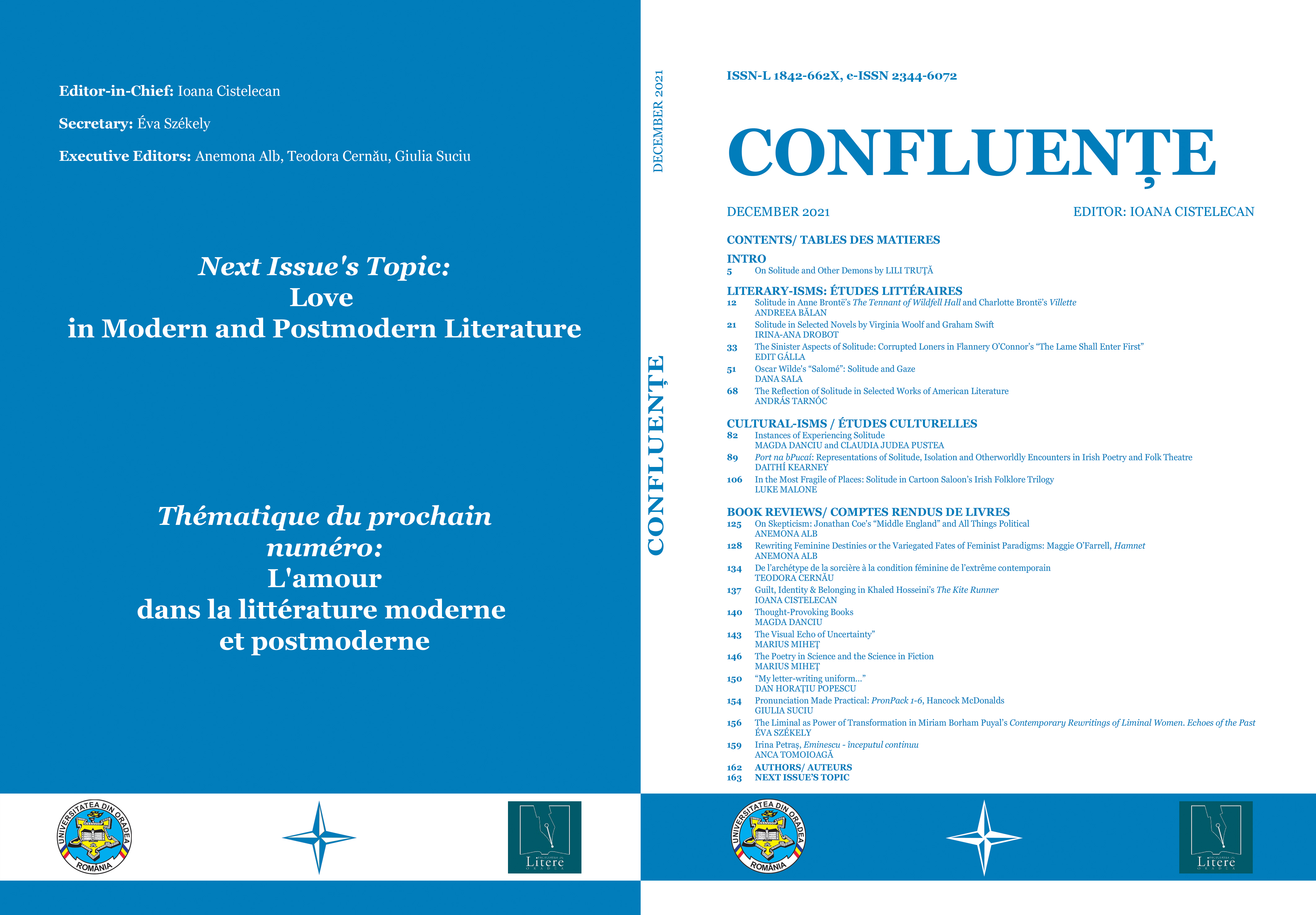Solitude in Anne Brontë’s The Tennant of Wildfell
Hall and Charlotte Brontë’s Villette
Solitude in Anne Brontë’s The Tennant of Wildfell
Hall and Charlotte Brontë’s Villette
Author(s): Andreea BălanSubject(s): Language and Literature Studies, Cultural history, Comparative Study of Literature, 19th Century, Theory of Literature, British Literature
Published by: Editura Universitatii din Oradea
Keywords: solitude; The Tennant of Wildfell Hall; Villette;
Summary/Abstract: A period of doom followed Romanticism, which stirred emotions of ambiguity concerning the future. Human peace was being sacrificed and this feeling of uncertainty unavoidably conducted people to fears of loneliness. With the publication of Darwin’s Origin of Species’, and the swift expansion of industrialisation and property, the Victorians underwent a significant period of transformation. Numerous Victorians missed their former way of life, and therefore distanced themselves from this new changing world, which made them feel incredibly lonely. Due to the prolific nature of the lonely protagonist in 19th-century fiction, it can be claimed that solitude becomes a trope that apprises readers of women's issues across all social classes throughout the Victorian age. This paper aims to explore the ways in which solitude is represented in Victorian literature, especially in Anne Brontë’s "The Tennant of Wildfell Hall” and Charlotte Brontë’s "Villette”. We will examine how these writers depict female heroines enduring solitude and how this expression becomes a vehicle for a discussion of women's roles.
Journal: Confluenţe. Texts and Contexts Reloaded
- Issue Year: I/2021
- Issue No: 1
- Page Range: 12-20
- Page Count: 9
- Language: English

